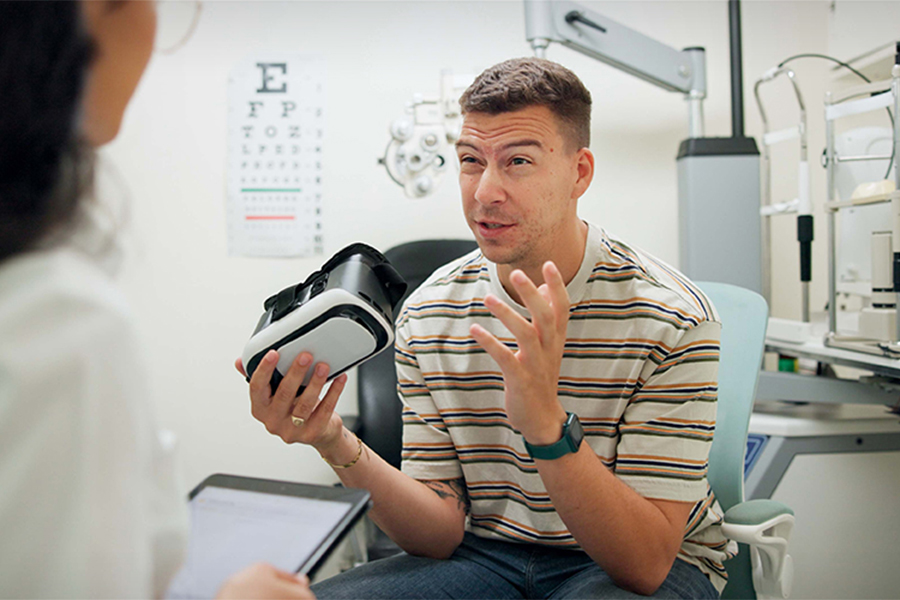
Clinical observations have long hinted that the liver plays an important role in brain function. Individuals diagnosed with liver disease often experience neurological symptoms, including impaired cognition, mood changes and disruptions in sleep patterns.
Despite these observations, the connection between the liver and brain has remained elusive – until now.
A new study from UHN’s Donald K. Johnson Eye Institute offers valuable insights into the molecular processes that link these two organs.
At the heart of this connection is the blood-central nervous system barrier (BCB) – a layer of tightly connected cells encircling the blood vessels within and around the brain and spinal cord. This barrier protects the nervous system by permitting the passage of important chemicals and nutrients from our blood and blocking harmful substances and pathogens.
In a recent study published in Nature Communications, researchers led by Dr. Philippe Monnier, a Senior Scientist at Donald K. Johnson Eye Institute, tested the possibility that the liver releases molecules that help maintain the integrity of the BCB.
“We wanted to determine whether molecules secreted by the liver act on the BCB, how this process occurs and what happens when it is disrupted, as in the case of liver disease,” explains Dr. Monnier.
The researchers discovered that HFE2, a protein secreted by liver cells, significantly contributes to the maintenance of intercellular connections between specialized cells lining blood vessels, crucial for the integrity of the BCB. When liver cells stop producing HFE2, these connections weaken, causing the BCB to become leaky.
The leaky BCB allows the entry and accumulation of fibrinogen – a blood-derived protein – in the brain, where it kills neurons.
Research findings have important clinical implications
Digging deeper, the team discovered that HFE2 maintains the brain’s protective barrier by blocking the actions of another protein – called RGMa. In the absence of HFE2, this protein damages vessel-lining cells, causing the barrier to break down.
“Our findings indicate that these two proteins have opposing effects – HFE2 helps keep the BCB closed, whereas RGMa tends to open it up,” explains Michelle Syonov, a doctoral candidate at the University of Toronto and first author of the study.
“We also learned that these proteins compete for the same receptor in the brain, so when one is in abundance, there is less opportunity for the other to exert its effects,” adds Dr. Xue Fan Wang, a former graduate student in Dr. Monnier’s lab and co-first author of the study.
“If we can balance the activity of these proteins, we could prevent neuron death in diseases characterized by BCB damage, such as multiple sclerosis.”
To test this idea, the researchers manipulated the levels of HFE2 in an experimental model of multiple sclerosis. They found that higher levels of HFE2 were associated with less RGMa activity, less neuron death and less severe disease.
These findings have important clinical implications, as HFE2 and RGMa could serve as targets for new drugs to treat diseases that involve BCB dysfunction.
Interestingly, these findings could also pave the way for developing strategies to improve our ability to administer existing drugs.
“The BCB is a critical defence mechanism for the nervous system, but it also makes it challenging to deliver drugs directly into the brain where they can have the greatest effects,” explains Robin Vigouroux, a former graduate student in Dr. Monnier’s lab and co-first author of this study.
“If we can temporarily disrupt the BCB, we can improve treatments for conditions ranging from brain tumours to Alzheimer disease.”
This study was supported by generous donors to UHN Foundation.

No one ever changed the world on their own but when the bright minds at UHN work together with donors we can redefine the world of health care together.


